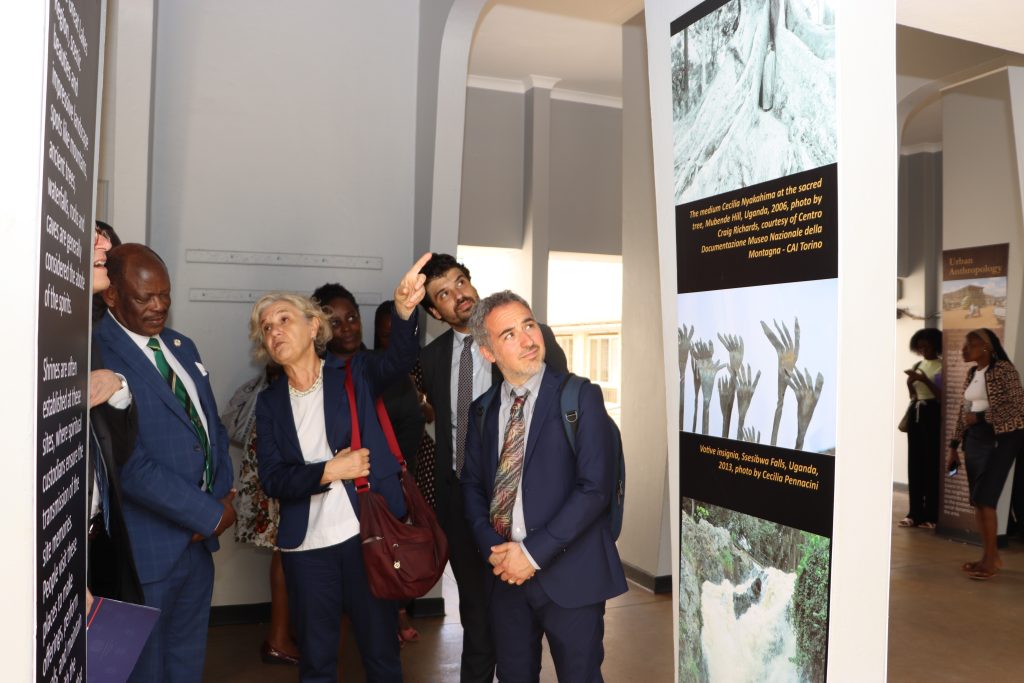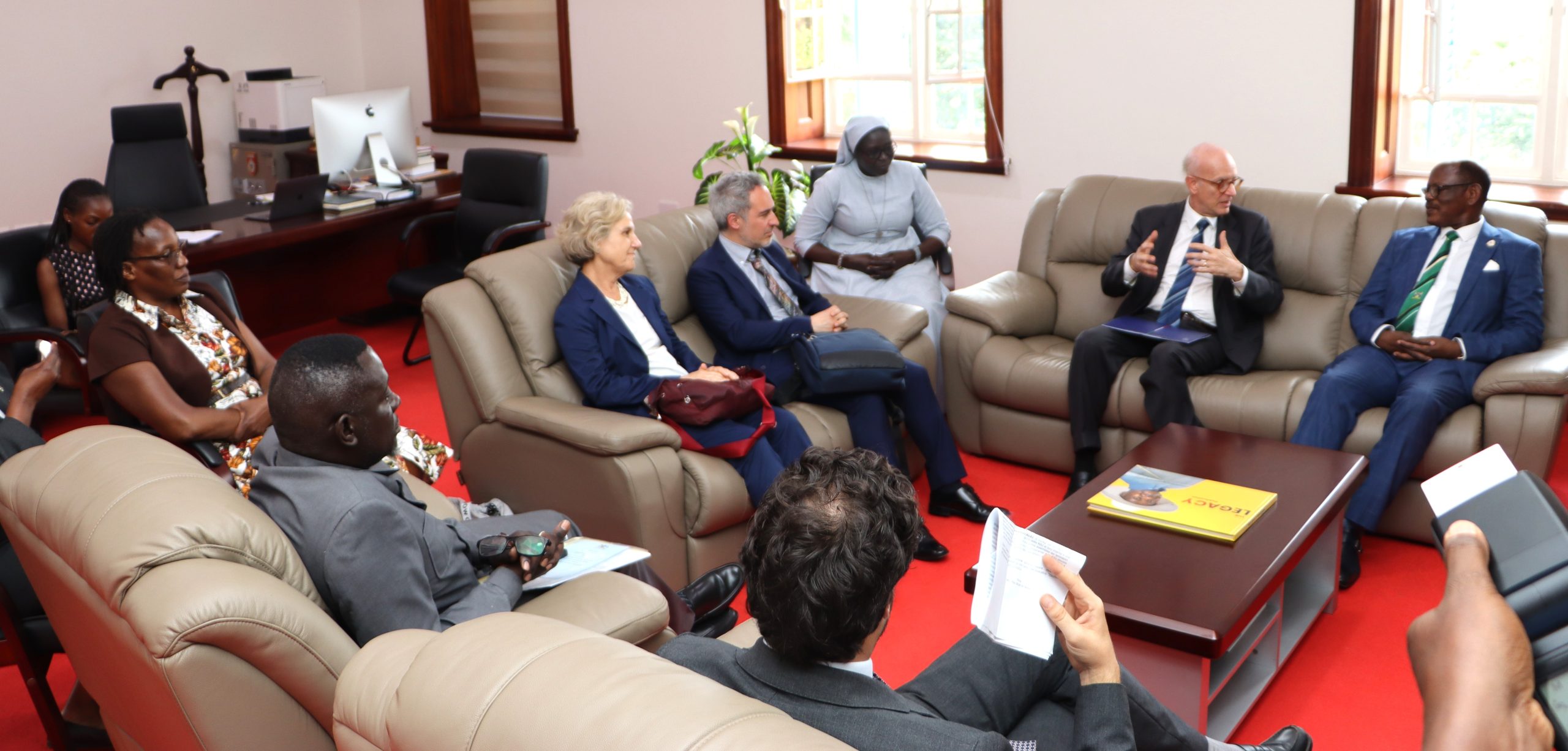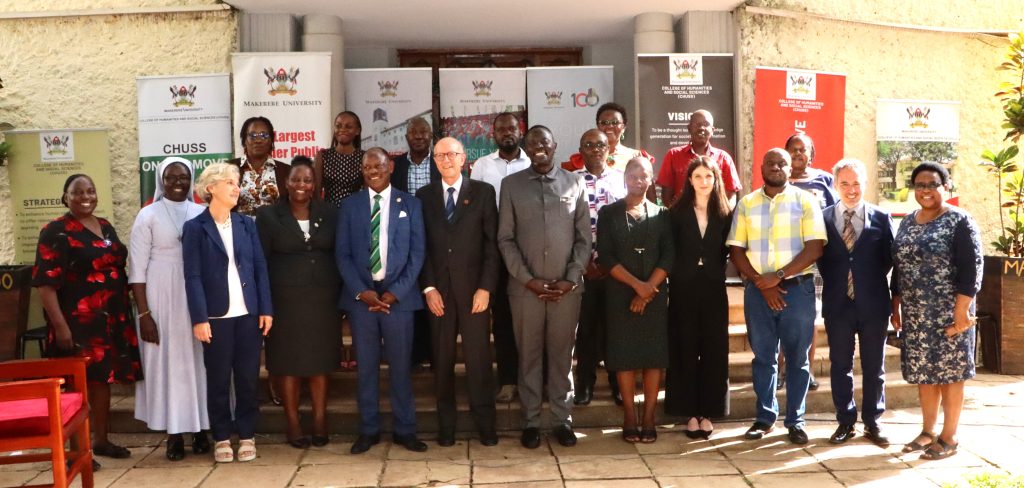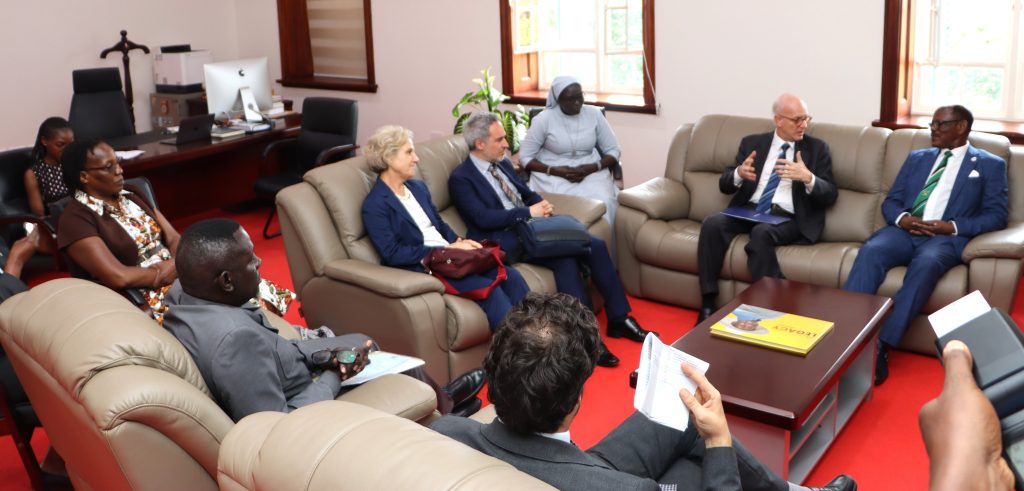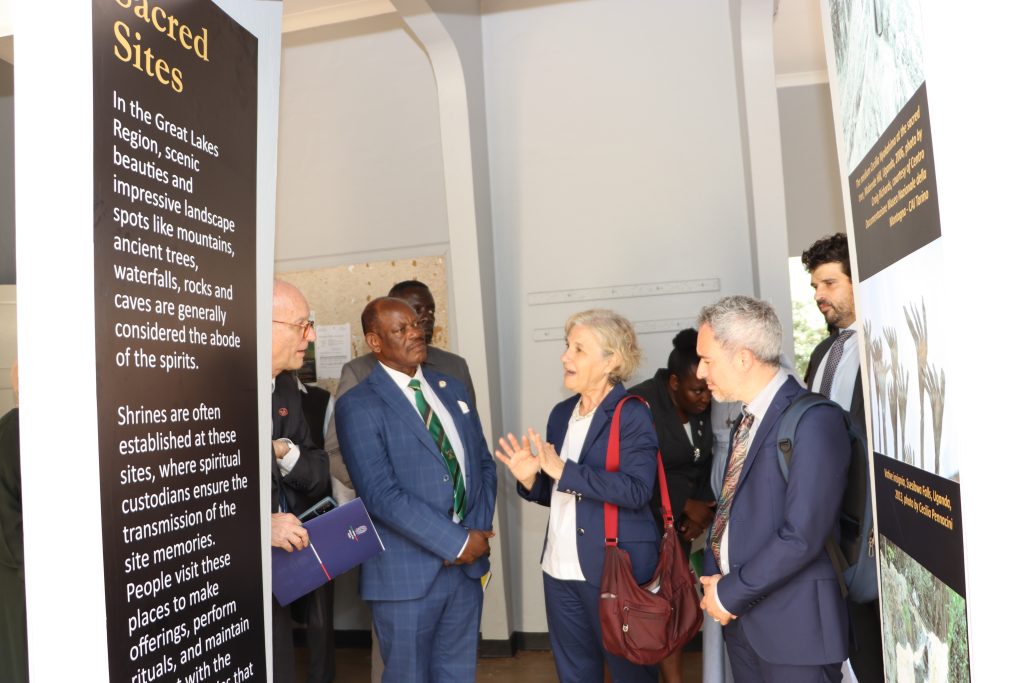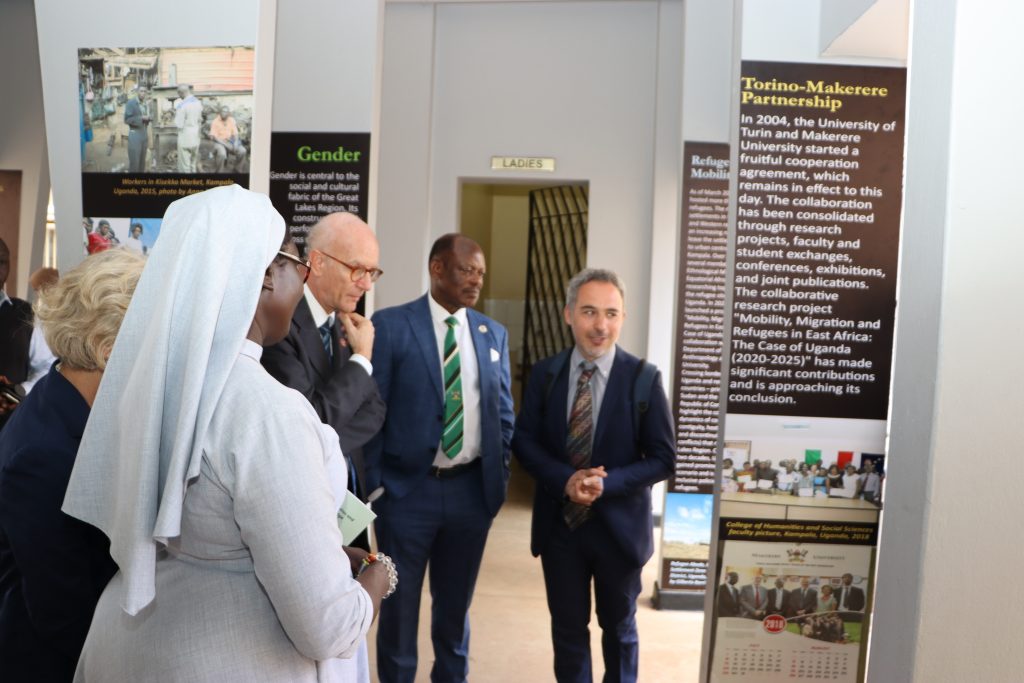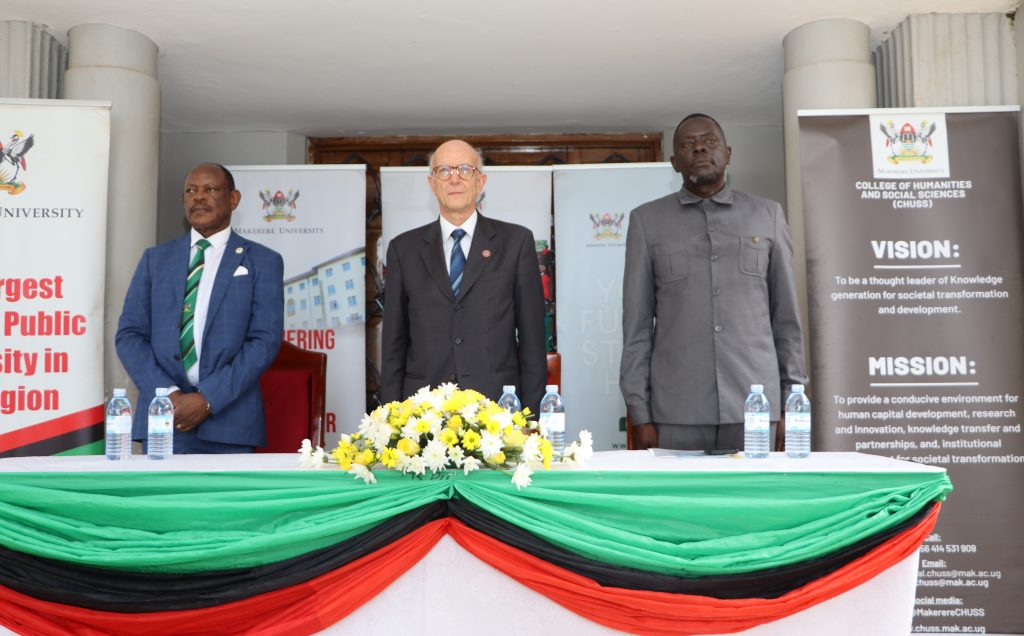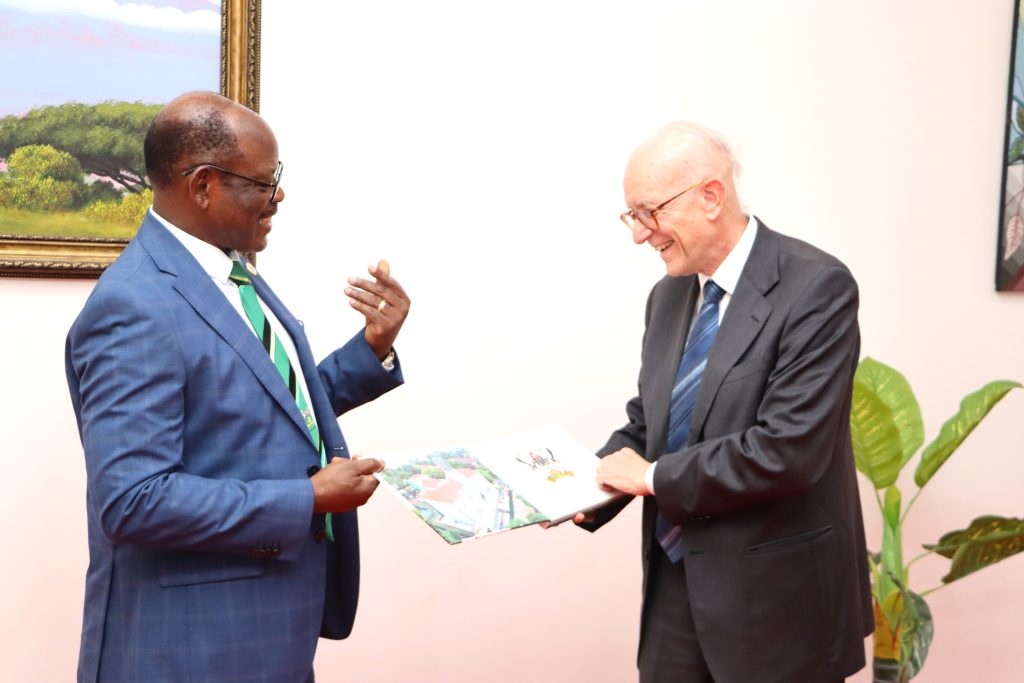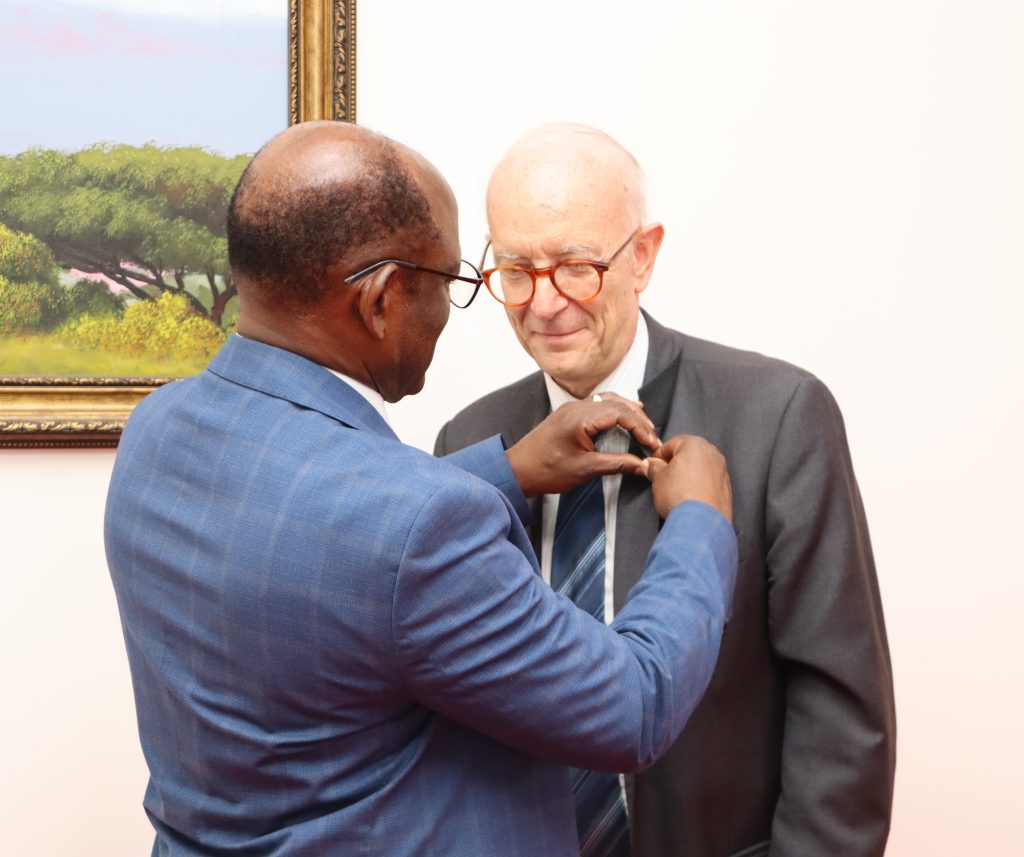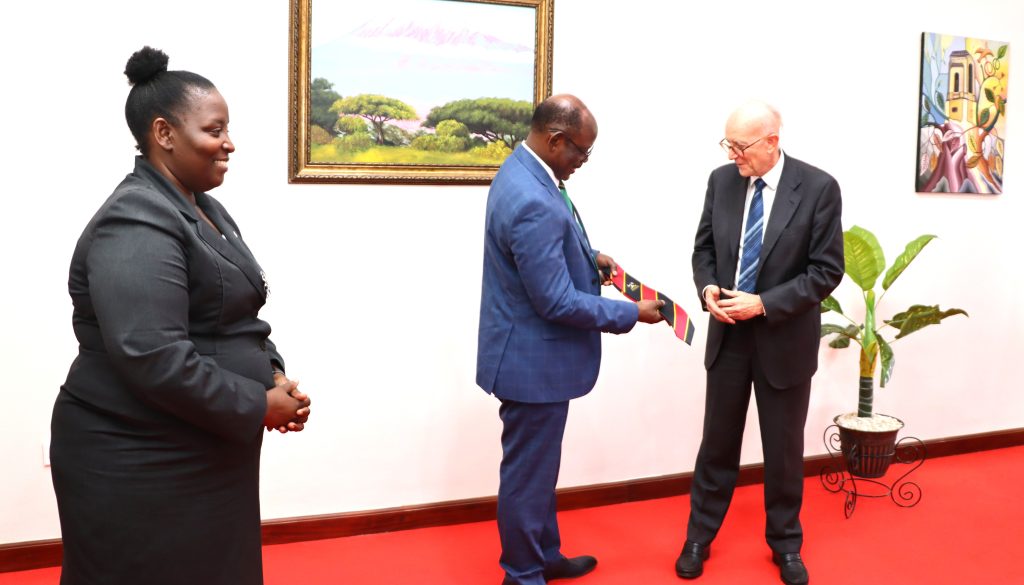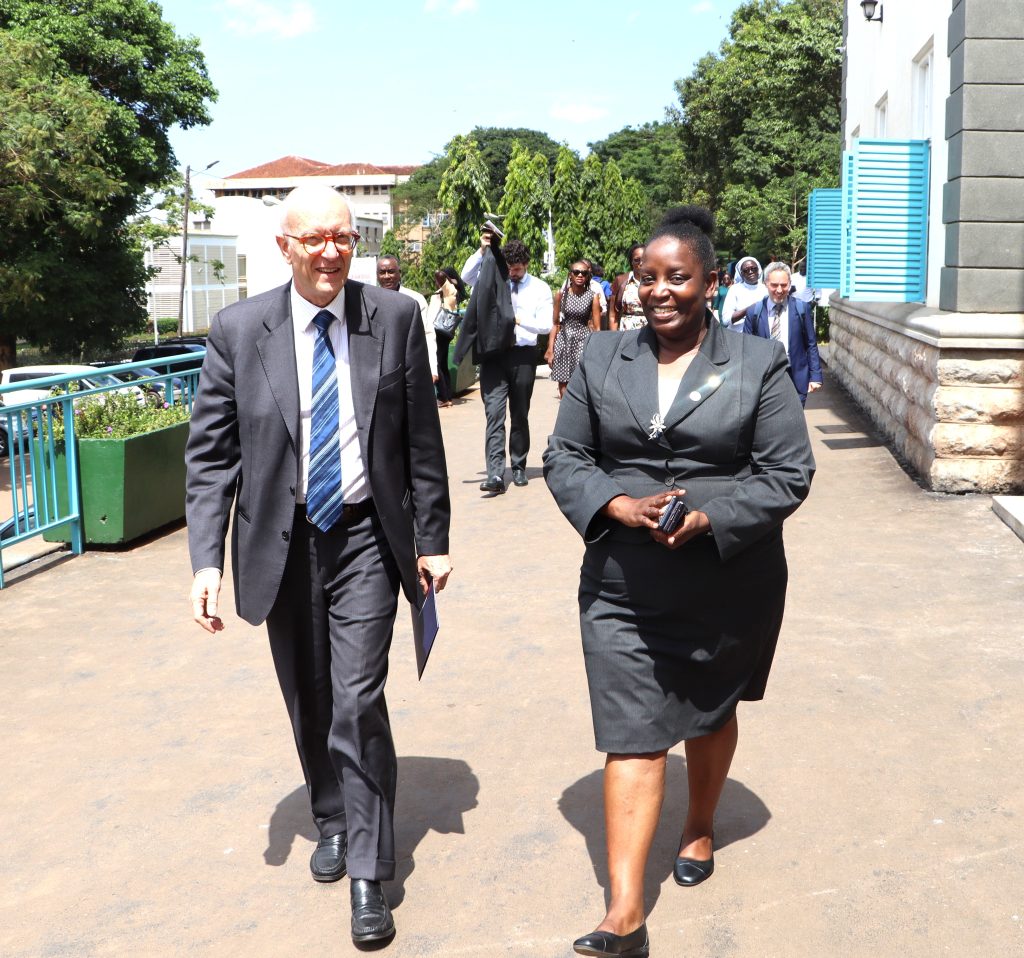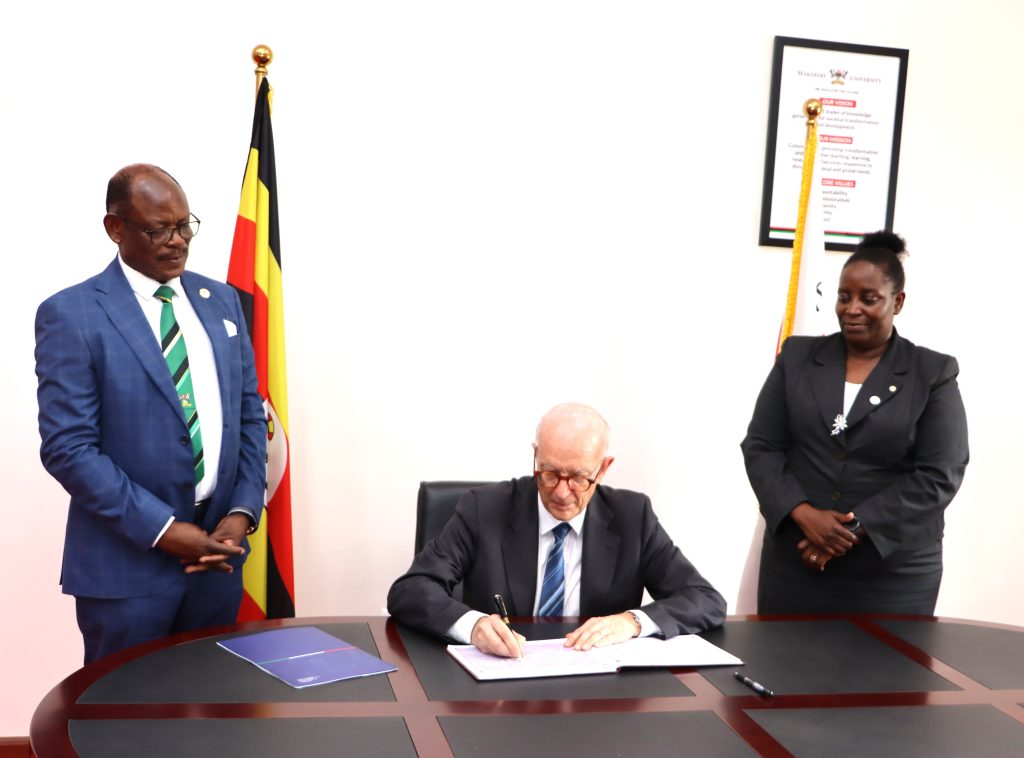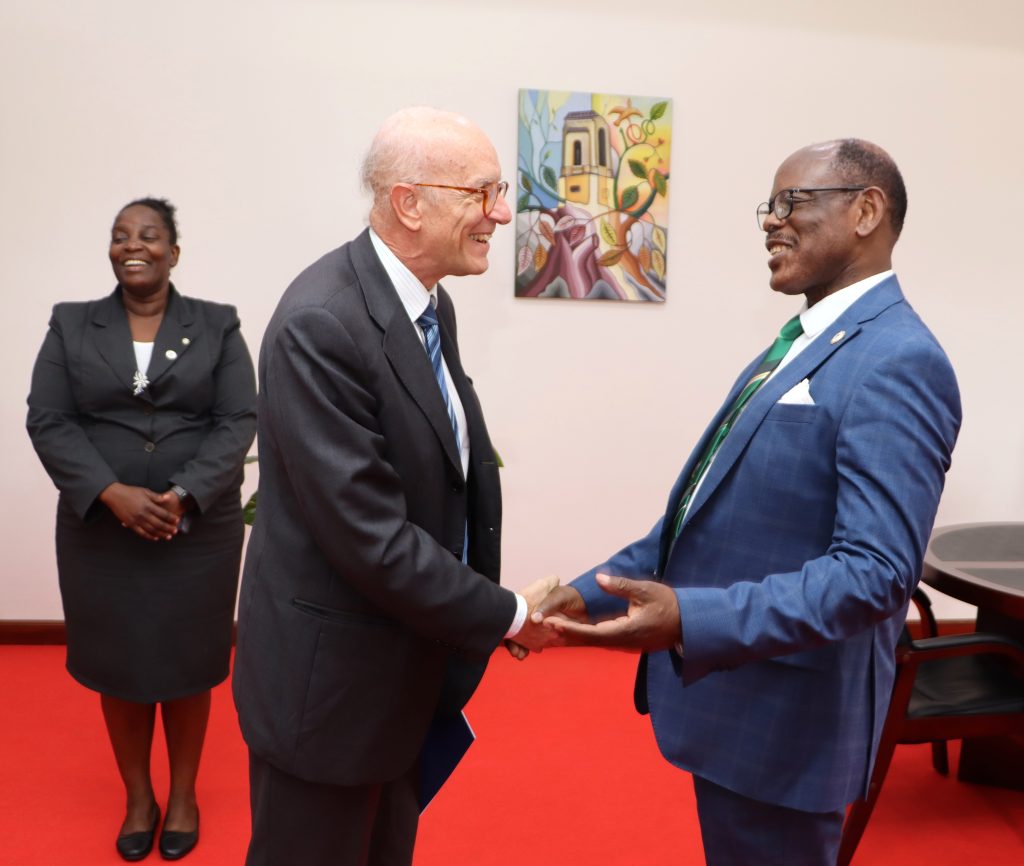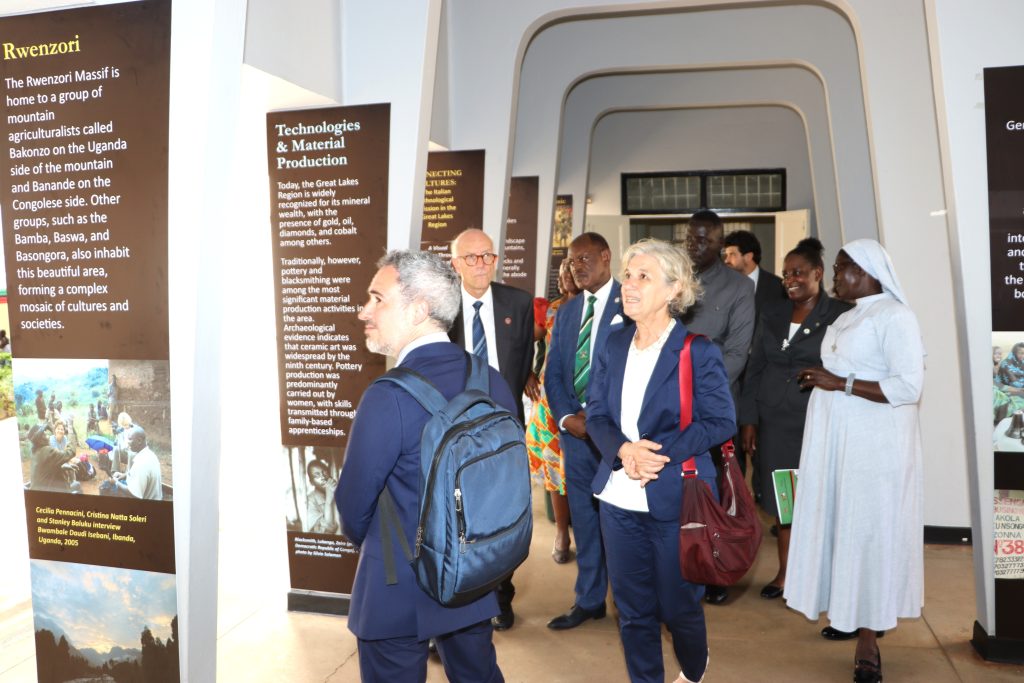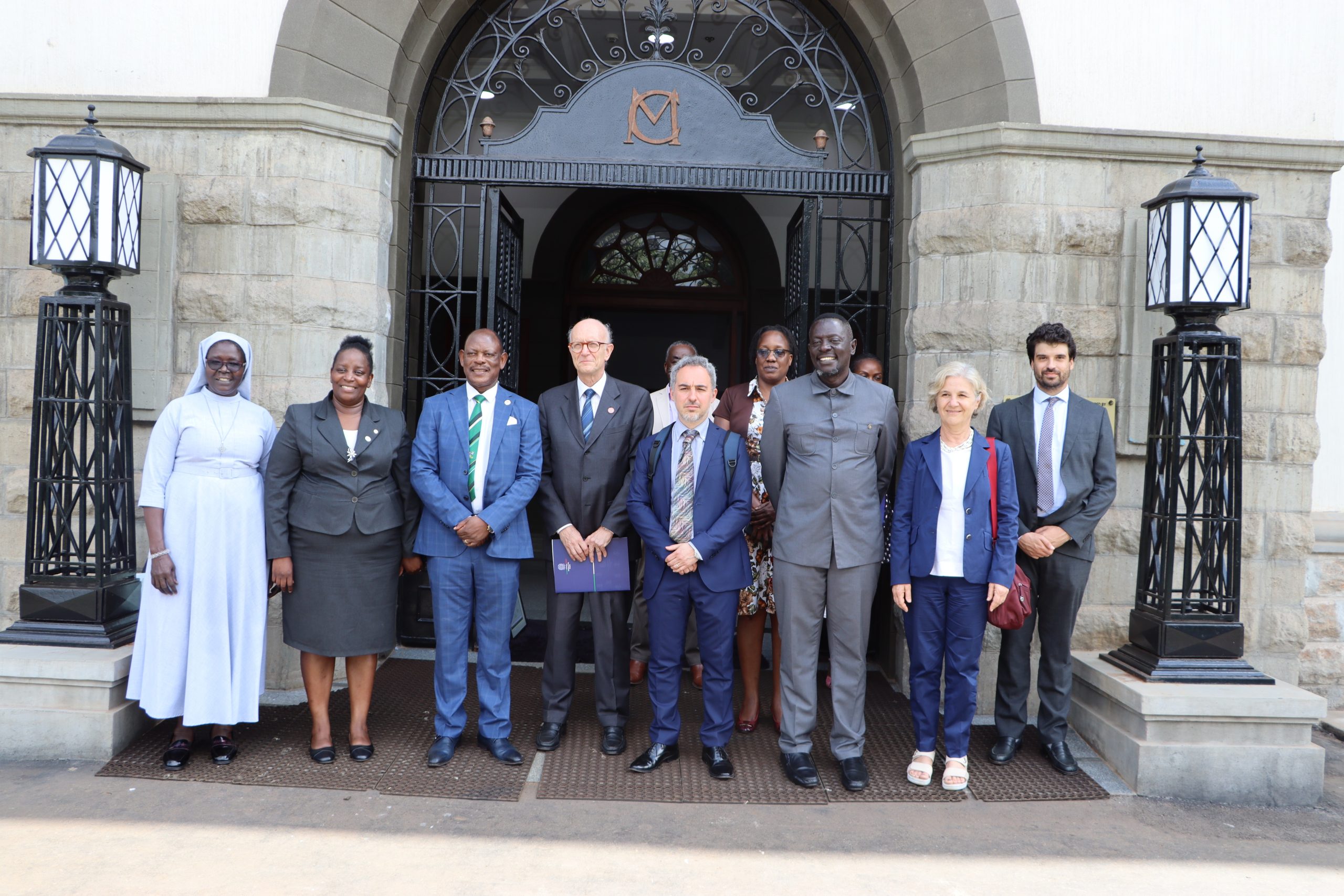Minister calls on universities to Mainstream Cultural Studies
Makerere University, in collaboration with the University of Turin and the Italian Embassy in Kampala, marked four decades of academic and cultural partnership with a landmark photographic exhibition titled “Connecting Cultures: The Italian Ethnological Mission in the Great Lakes Region.”
The exhibition, hosted at the College of Humanities and Social Sciences (CHUSS), visually chronicles over 40 years of Italian ethnographic research in Equatorial Africa. Since its establishment in 1979, the Italian Ethnological Mission—anchored at the University of Turin—has documented and studied the social and cultural fabric of the Great Lakes Region, including Uganda, the Democratic Republic of Congo, Rwanda, Burundi, and Tanzania.
Funded by the Italian Ministry of Foreign Affairs and International Cooperation and supported by the Erasmus+ programme, the mission focuses on topics including refugee integration, traditional knowledge, oral history, and cultural continuity.
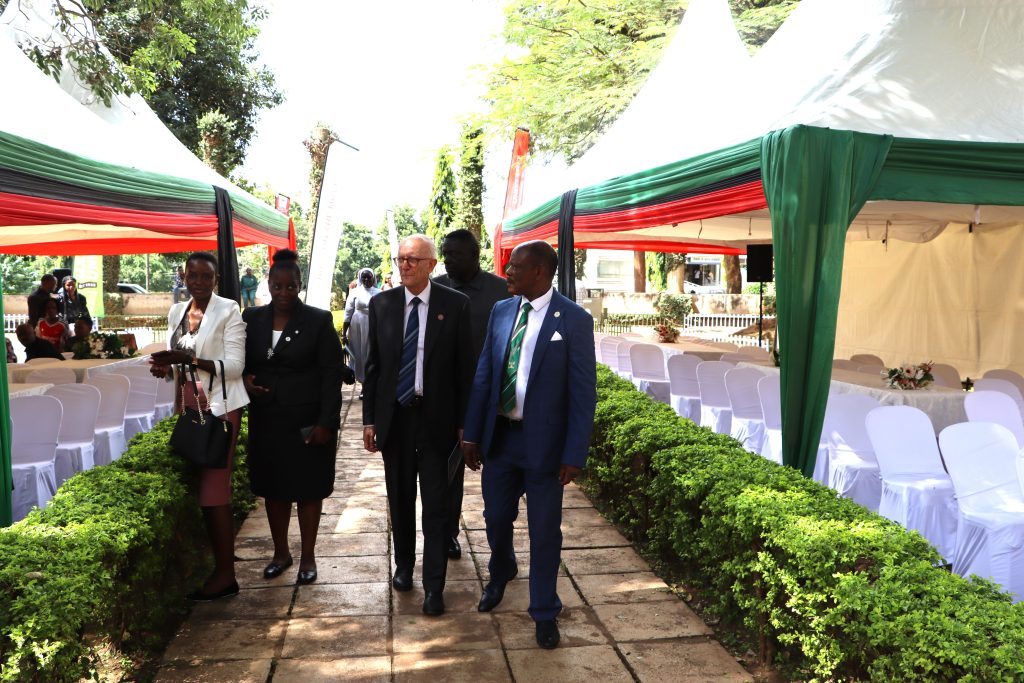
The exhibition aims to share the Mission’s ethnographic insights, celebrate academic cooperation between Uganda and Italy, and highlight the deep interwoven cultural legacies of the region’s communities.
Presiding over the official opening on behalf of the Honorable Minister of State for Higher Education, Dr. John Chrysestom Muyingo, Commissioner Timothy Ssejjoba delivered a message emphasizing the educational significance of the initiative.
“This is not merely an exhibition of images,” he said. “It is a profound representation of intellectual partnership, cultural dialogue, and the enduring power of research and education to shape societies.”
Drawing inspiration from an African proverb—”When a child washes their hands, they dine with kings”—he acknowledged the honor of representing the Minister at such a distinguished gathering and used the opportunity to reaffirm government support for cultural preservation and academic innovation.
Commissioner Ssejjoba noted that Uganda’s aspirations, as articulated in the Vision 2040 and successive National Development Plans (NDP III and IV), align strongly with the goals of ethnographic research. He highlighted that investing in cultural heritage is not merely nostalgic but strategic for human capital development, social cohesion, and regional integration.
“In today’s world of globalization and displacement, ethnographic work becomes indispensable. It helps us preserve intangible heritage and build resilient, inclusive communities,” he said.
The commissioner commended the Italian Ethnological Mission, founded by Prof. Francesco Remotti and carried forward by Prof. Cecilia Pennacini and current Director Prof. Alessandro Gusman, for their long-standing engagement with Uganda and the wider Great Lakes Region.
Ministerial Appeal: Cultural Studies Are a Necessity, Not a Luxury
A key message in his remarks was a direct call to Uganda’s higher education institutions:
“I therefore call upon our universities to continue integrating cultural studies into mainstream curricula—not as a luxury, but as a necessity in building well-rounded, empathetic, and informed citizens.”
This appeal was underpinned by the government’s commitment to transformative education, as outlined in the Social Education Sector Strategic Plan, which seeks to produce globally minded graduates capable of addressing complex societal issues.
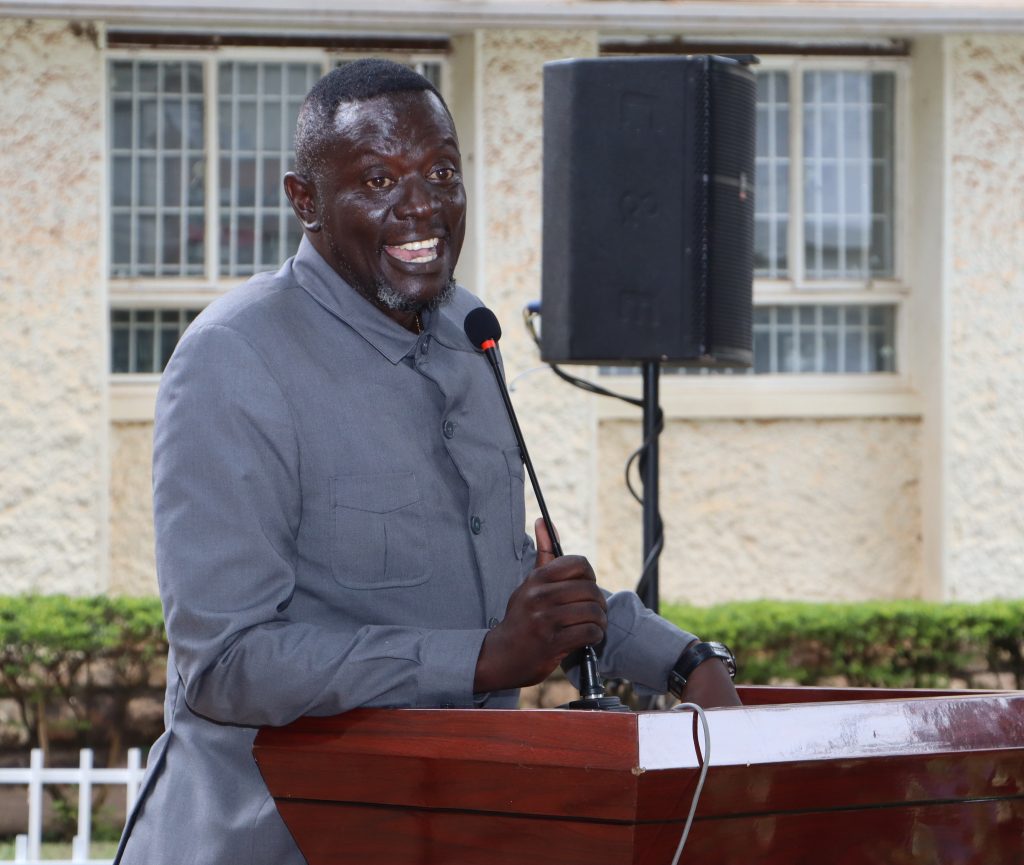
The commissioner also lauded the Erasmus+ Programme for facilitating student and staff mobility between Makerere and the University of Turin, significantly improving PhD completion rates and strengthening international research ties.
The Connecting Cultures exhibition offers a visual journey through four decades of ethnographic work, touching on themes such as identity, migration, oral traditions, music, and the social lives of communities across the region. It serves not only as a scholarly archive but also as a bridge between past and future generations.
“These photographs are living stories,” Ssejjoba emphasized. “They reflect identity, tradition, and the power of memory in shaping who we are—and who we aspire to become.”
In echoing the day’s theme, Commissioner Ssejjoba described the exhibition as “a testament to the transformative power of education, culture, and international solidarity.” He called upon development partners to support similar initiatives that use culture as a tool for peacebuilding, intercultural dialogue, and inclusive development.
“To the students, researchers, and the broader public,” he concluded, “may you draw inspiration from this work. Let us preserve our cultural heritage, connect across borders, and use education as a force for progress.”
Italy Backs Cross-Cultural Research as Key to Social Transformation – Ambassador Massoni
Italy’s Ambassador to Uganda, H.E. Mauro Massoni, hailed cross-cultural academic collaboration as a powerful vehicle for social change, policy innovation, and mutual understanding, calling the partnership between Makerere University and the University of Turin a model for international cooperation.
Ambassador Massoni praised the longstanding collaboration between Italian and Ugandan scholars, particularly through the Italian Ethnological Mission in the Great Lakes Region. He noted that the mission, established over four decades ago, continues to foster intercultural dialogue and tackle shared global challenges through ethnographic research.
“This exhibition offers more than images. It tells the story of enduring cooperation—academic, cultural, and human—between our two countries,” he said. “It’s a testament to what we can achieve when we work together across disciplines, borders, and continents.”
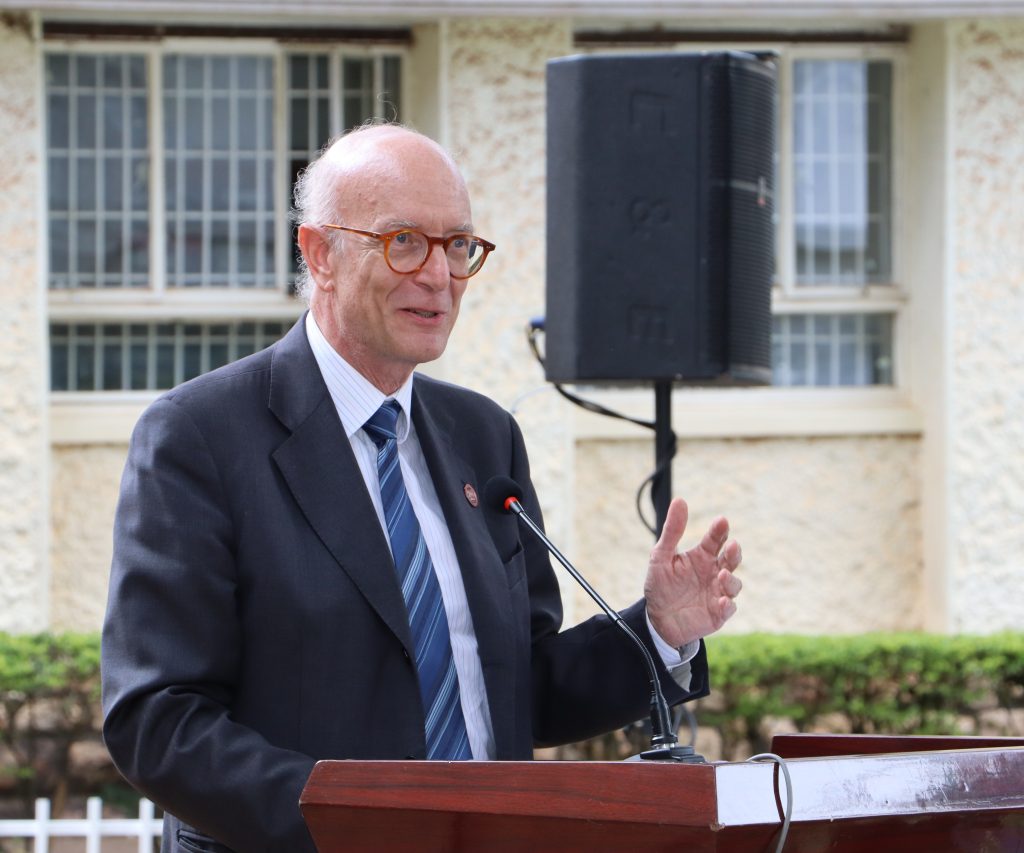
The Ambassador commended the University of Turin, particularly Professors Alessandro Gusman and Cecilia Pennacini, for their leadership in driving fieldwork-based research that links academia with community needs. He emphasized that the mission has not only enriched scholarly understanding but also played a role in social dialogue, community engagement, and humanitarian advocacy.
“This partnership transcends academic borders. It contributes to policy development and community cohesion. It shows how research—when rooted in empathy and equity—can improve lives,” he said.
Ambassador Massoni also spotlighted collaborative projects such as those examining migration, refugee experiences, and mobility in East Africa, many of which are supported by the Erasmus+ programme. These joint initiatives, he said, help address pressing social issues through shared academic pathways.
“Such work strengthens mutual comprehension and confronts the complex realities shaping our societies today,” he noted.
Additionally, he highlighted the recent launch of the Strengthening African-Italian Museum Partnerships project, supported by the Italian Agency for Development Cooperation. The initiative aims to digitize and preserve African cultural heritage in collaboration with major Italian and African museums, including the Uganda Museum.
“Italy is proud to support this effort. We see scientific diplomacy and cultural heritage as powerful tools for trust, understanding, and long-term collaboration,” he said.
In closing, Ambassador Massoni expressed gratitude to Makerere University and the wider academic and curatorial teams behind the exhibition. He encouraged guests to view the display not only as a celebration of past work but also as a call to future action.
“Let us continue building together—not only academic bridges—but human ones,” he concluded.
We must train more Archeologists and Anthropologists- Vice Chancellor Prof. Nawangwe
Makerere University Vice Chancellor, Prof. Barnabas Nawangwe hailed universities as key agents of peacebuilding and intercultural dialogue, emphasizing their critical role in advancing global understanding amid rising geopolitical tensions.
Prof. Nawangwe praised the longstanding collaboration between Makerere University and Italian institutions, calling it a shining example of how academic partnerships can foster peace and mutual respect.
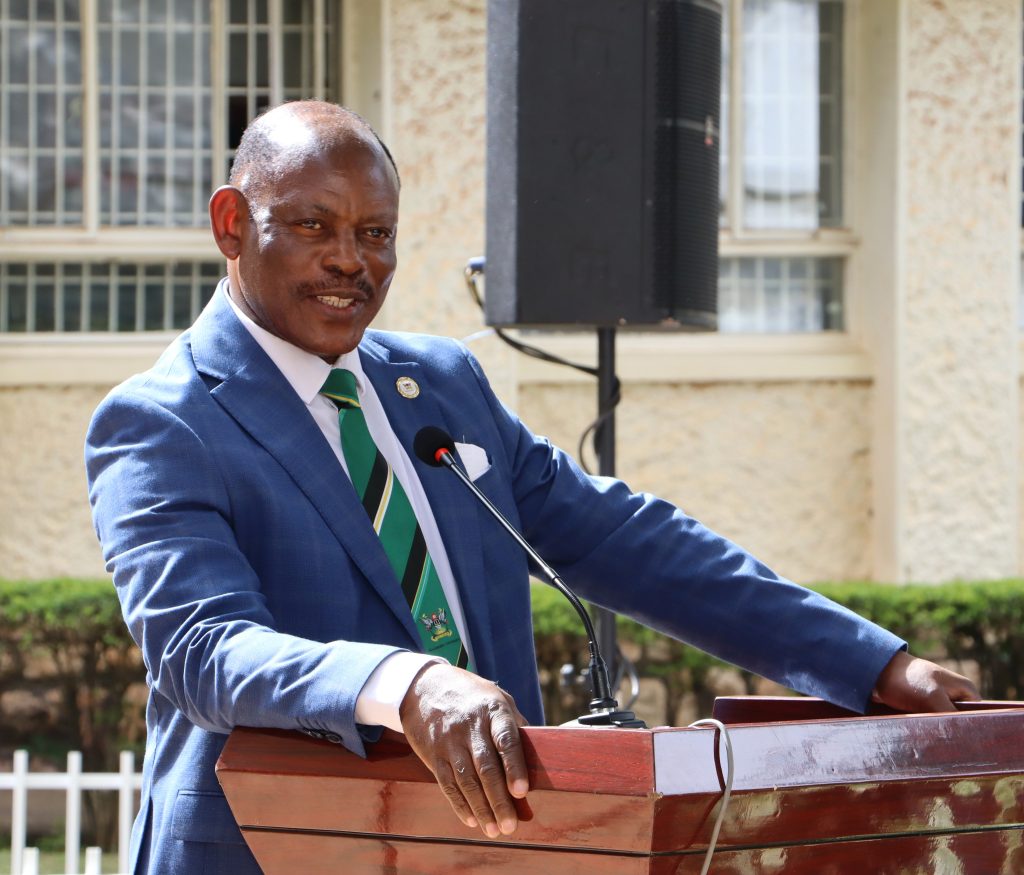
“Universities are the best engines for promoting peace in the world. There is no better institution than a university to bring people and cultures together,” Prof. Nawangwe asserted. Reflecting on historical ties, Nawangwe recalled the substantial support Makerere received from the Italian government during the 1987 donor conference, particularly in reviving the Faculty of Technology. He noted that the impact of such partnerships goes beyond infrastructure and education, contributing to nation-building and lasting international friendships.
“I personally benefited from those exchanges. I lived in Italy for a month, studied the language, and engaged with Italian culture. These interactions create lifelong connections,” he said.
He pointed to Makerere’s global footprint as a leading research institution, recently ranked by Times Higher Education as the most collaborative university in the world, based on international research partnerships.
“At Makerere, we have more researchers publishing with colleagues from other universities than anywhere else. This collaborative spirit reflects our belief in academic diplomacy as a force for development,” he explained.
Prof. Nawangwe highlighted the university’s particularly strong ties with Italy, noting that most of its Erasmus+ academic exchange agreements are with Italian institutions. He attributed this to the deep-rooted friendship between Uganda and Italy, with Makerere acting as “Uganda compressed in one place.”
Praising the exhibition’s vivid portrayal of East and Central African cultural heritage through photography, Nawangwe called visual documentation one of the most powerful tools for preserving and communicating knowledge.
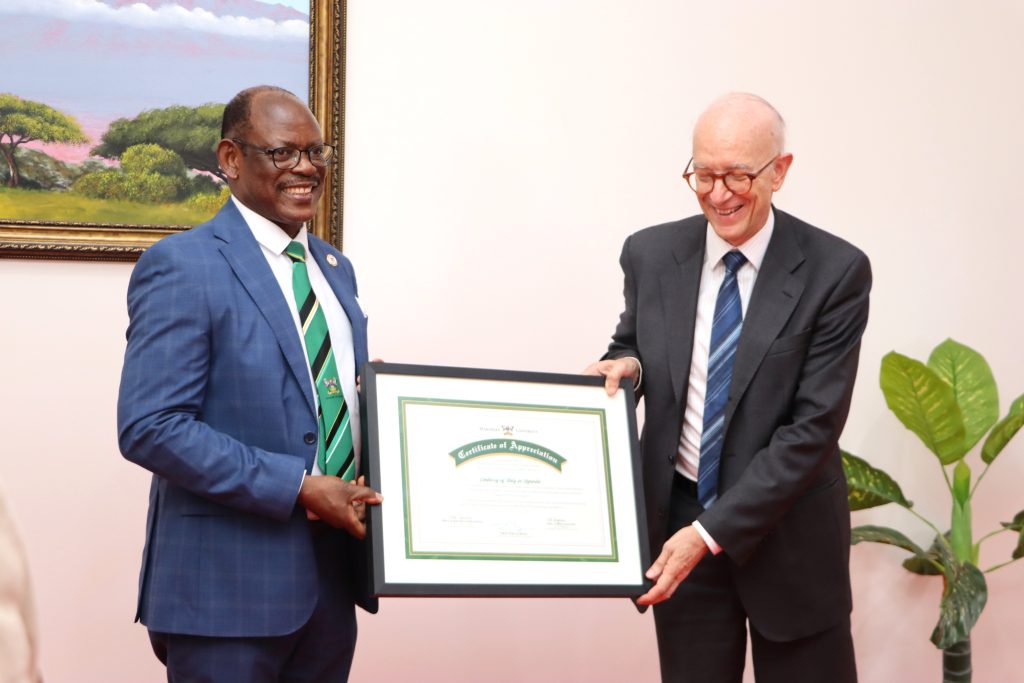
“A photographic illustration is the strongest kind of evidence. It stays with you. What I saw today helped bring to life things I’ve only read or heard about,” he said.
The Vice Chancellor also expressed concern over the limited development of disciplines like archaeology in Uganda, describing it as “a shame” that the country only recently graduated its first archaeologist.
“With all our cultural diversity and historical wealth, how can archaeology be new in Uganda? We must train more archaeologists and anthropologists to study our own heritage,” he urged.
He concluded by encouraging scholars to remain committed to cultural research and international collaboration, thanking the Italian Embassy for its continued support in fostering ties between Uganda and Italy.
“We must keep walking in our pursuit of knowledge, peace, and progress for Uganda and the world,” Nawangwe said, in his characteristic blend of seriousness and humor.
Nkabala Calls for Introduction of Italian Language at Makerere to Deepen Cultural Connections
Associate Professor Helen Nambalirwa Nkabala, Principal of the College of Humanities and Social Sciences (CHUSS), called for the introduction of Italian language instruction at the university as a strategic step in strengthening cultural and academic ties between Uganda and Italy.
Prof. Nkabala emphasized the importance of language in fostering deeper intercultural understanding and advancing the university’s global engagement agenda.
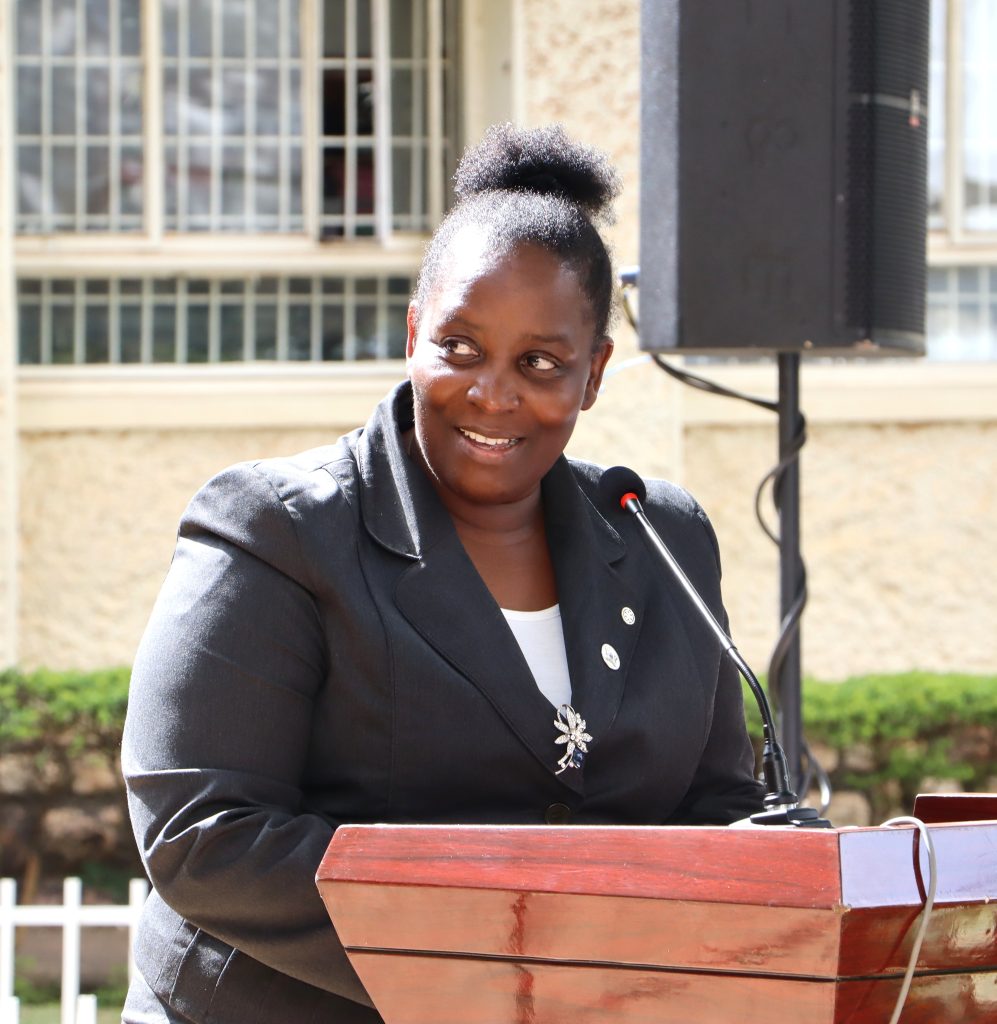
“In addition to what is already happening, we’d like to invite you to the School of Languages, Literature, and Communication so that we can start teaching Italian at Makerere University. When we talk about connecting cultures, issues of poetry come in,” Nkabala said.
The principal highlighted the longstanding relationship between Makerere University and Italian academic institutions, referencing ongoing collaborations with the University of Turin, the European Academy of Religion, and new engagements with Sapienza University of Rome. She also acknowledged support from Italian scholars such as Prof. Alessandro Gusman and Prof. Cecilia Pennacini.
“Friends, today is testimony that the College of Humanities and Social Sciences will use all that is within its means to change the narrative,” she said, referring to the exhibition as a powerful demonstration of the college’s research impact and cultural outreach.
Prof. Nkabala praised Makerere’s deans, heads of departments, and academic staff for their collective efforts in organizing the exhibition, and extended special appreciation to the Italian Embassy in Kampala for its continued logistical and visa support, which has enabled seamless academic exchange.
“Our academics never get problems because you have a very dynamic team. We thank you very much for allowing them the opportunity to support us when we need it,” she noted, addressing Italian Ambassador Mauro Massoni directly.
She also paid tribute to predecessors, including Prof. Josephine Ahikire and the former Principal Prof. Edward Kirumira, for their role in laying the foundation for enduring academic partnerships between Uganda and Italy.
As the College of Humanities and Social Sciences continues to expand its international footprint, Nkabala urged faculty and students to remain committed to collaboration and participation in future joint initiatives.
“Colleagues, I call upon you to be present when called upon,” she said, reaffirming CHUSS’s dedication to cultural diplomacy through research, language, and the arts.
Africa Offers the World Wisdom and Science—Prof. Pennacini Urges New Era of Equal Academic Partnerships
Professor Cecilia Pennacini, former Director of the Italian Ethnographic Mission in the Great Lakes Region called for a paradigm shift in Africanist research and cultural cooperation, asserting that Africa offers the world invaluable wisdom, philosophy, and science.
Prof. Pennacini emphasized that Italian scholars came to Africa “not to teach, but to learn.” “The ancient civilizations of Africa have so much to teach the Western world—in terms of knowledge, wisdom, philosophy, politics, even science and art,” she said. “This is why our mission has always been grounded in humility and mutual respect.”
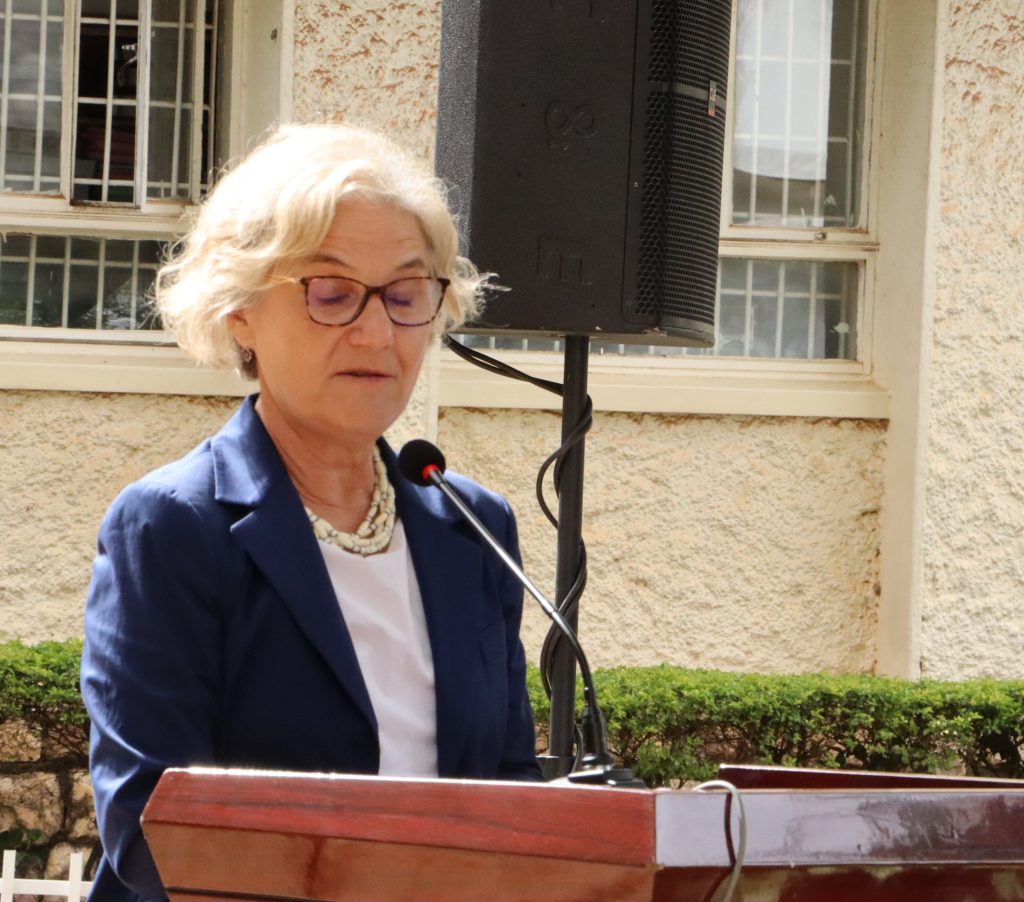
Prof. Pennacini reflected on the foundational vision of the Italian Ethnographic Mission, established by her mentor, Prof. Francesco Remotti, who advocated for fieldwork rooted in cultural dialogue rather than colonial paradigms of knowledge extraction.
Upon assuming leadership of the Mission in 2005, Pennacini prioritized creating equal academic partnerships. She credited this approach with the establishment of a formal collaboration with Makerere University, which has since flourished through joint research, teaching exchanges, and mobility programs funded by the European Union’s Erasmus+ initiative.
“We have grown together—building common knowledge and hopefully laying foundations for future generations,” she noted.
Prof. Pennacini also announced a major new initiative aimed at transforming museum practice and cultural preservation across Africa and Europe. The project, Strengthening African-Italian Museum Partnerships, is supported by the Italian Agency for International Development Cooperation (AICS) and will connect eight museums—four in Africa and four in Italy.
Participating institutions include the Uganda Museum, the National Museum of Ethiopia, the National Museum of Lubumbashi in the DRC, and the Ethnographic Museum at Addis Ababa University. These will collaborate with the Museum of Civilizations in Rome, the Royal Museums of Turin, the Savoy Residences in Piedmont, and the Anthropology and Ethnography Museum at the University of Turin.
“This project seeks to digitize, catalogue, and valorize ethnological and artistic collections through a participatory approach,” she said. “It will involve local communities, diaspora groups, and civil society as co-creators of museum life.”
Prof. Pennacini stressed the need for museums to be transparent about the provenance of their collections and to embrace inclusive narratives that reflect source communities’ voices. She tied this initiative to Italy’s broader commitment to a redefined model of cooperation inspired by the Mattei Plan for Africa, which promotes non-exploitative, mutually beneficial partnerships.
“Culture must be seen as a fundamental pillar of human development—socially, economically, and intellectually,” she concluded.
Italian Ethnological Mission Celebrates 46 Years of Cultural Research and Partnership in the Great Lakes Region — Prof. Gusman
Professor Alessandro Gusman, Director of the Italian Ethnological Mission in the Great Lakes Region, reaffirmed the mission’s enduring commitment to linking people, cultures, and institutions across national borders through academic and cultural research.
Prof. Gusman described the event as both a celebration and a reflection on 46 years of Italian ethnological research in East Africa, particularly the Great Lakes Region.
“This exhibition retraces the history of our work and celebrates our long-standing collaboration with Makerere University, one of the most esteemed academic institutions in East Africa,” he said.
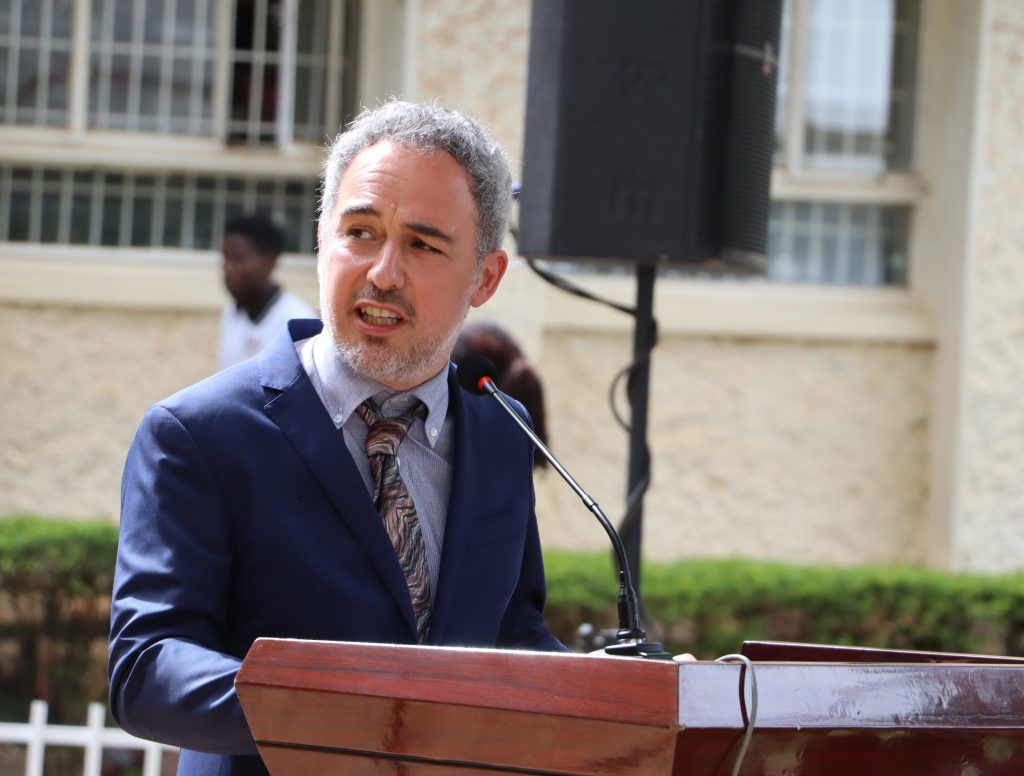
The Italian Ethnological Mission, founded in 1979 by Prof. Francesco Remotti in what was then Zaire (now the Democratic Republic of Congo), has progressively expanded its research footprint across the region—later including Burundi, Rwanda, Tanzania, and Uganda. It officially began its partnership with Makerere in 2004, a relationship Prof. Gusman said has significantly shaped the mission’s academic trajectory.
“The title Connecting Cultures reflects the mission’s core goal understanding and linking diverse societies through shared anthropological inquiry,” Prof. Gusman noted.
He expressed gratitude to the Italian Embassy in Kampala for its continued support, and to the College of Humanities and Social Sciences (CHUSS) at Makerere University for hosting and nurturing the partnership over two decades.
Special acknowledgment was extended to Prof. Cecilia Pennacini, who led the Mission from 2004 to 2018, for deepening the collaboration with Makerere and expanding research into Uganda. Prof. Gusman emphasized that the Mission’s work has always prioritized cultural continuity and regional interconnectivity through language, social structures, and institutions.
“The photographs and texts featured in this exhibition are the result of decades of collaborative research and dialogue,” he said. “They are not just artifacts—they are bridges between nations, histories, and academic traditions.”
Looking forward, Prof. Gusman expressed hope that the partnership would continue to flourish, enhancing academic prestige and generating lasting societal impact.
“Our hope for the future is that these collaborations will grow deeper, bringing not only recognition to the institutions involved but also creating meaningful change across communities,” he concluded.
Makerere’s Prof. Dipio: Italian Collaboration Brings Cultures and Institutions Closer
Professor Dominic Dipio, Coordinator of the ERASMUS Mobility Program at Makerere University, praised the ongoing academic and cultural partnership between Uganda and Italy, calling it a powerful force for diplomacy and institutional connection.
Prof. Dipio highlighted how collaborative efforts between the University of Turin, Makerere, and the Italian Ethnological Mission in the Great Lakes Region have served to “bring Italy closer to Uganda.”
“Exhibitions like this are important because many Ugandans, especially those shaped by British colonial heritage, know little about Italy. These events narrow that gap,” she said.
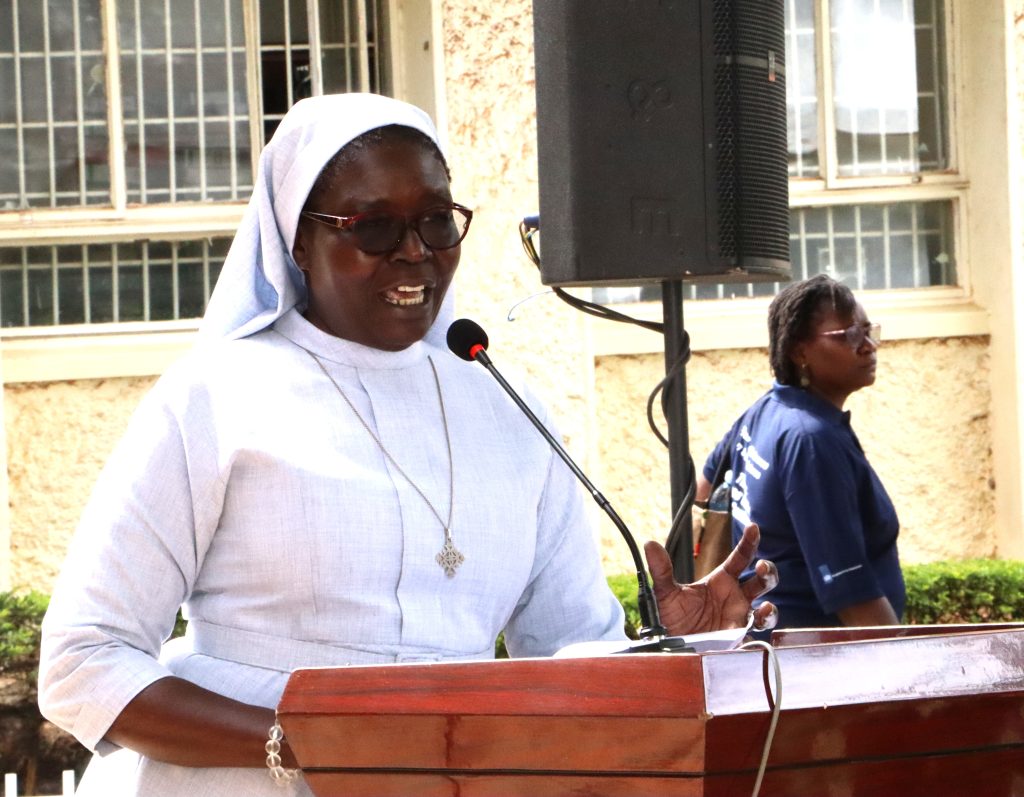
The exhibition, organized in partnership with the Italian Embassy in Kampala, builds on a previous one held in 2022. Prof. Dipio lauded the long-standing academic ties facilitated by the European Union’s Erasmus+ program, which has enabled robust student and staff mobility between the two universities since 2016.
“This triangular relationship between the Government of Italy, Erasmus+, and our universities has allowed Makerere students to spend up to ten months in Italy completing their dissertations — a rare opportunity that boosts our PhD completion rates significantly,” he noted.
Prof. Dipio emphasized the critical role of scholars in diplomacy, stating that research and academic exchange naturally weave connections across cultures and borders.
“The work of scholars often goes beyond classrooms and papers. It becomes a means of international dialogue and peacebuilding,” he said.
She also commended the logistical teams from Makerere, the University of Turin, and the Italian Embassy — particularly the visa section — for enabling seamless academic travel.
“Your commitment, your flexibility, and your belief in this partnership have made it thrive. We are grateful,” Dipio said, addressing embassy representatives present.
The exhibition showcases decades of ethnographic research by the Italian mission and emphasizes themes of cultural continuity, social institutions, and intercultural exchange in the Great Lakes region. Prof. Dipio expressed hope that the exhibition panels remain accessible for more students and faculty to benefit from before the academic break.
“We pray this collaboration continues to flourish. It is not just institutional — it is deeply personal. We now call each other by our first names, a sign of the trust and friendship we’ve built,” she concluded.
The Connecting Cultures exhibition is part of a broader movement at Makerere University to internationalize its academic outlook and deepen ties with institutions around the world, especially in the humanities and social sciences.
Gallery

